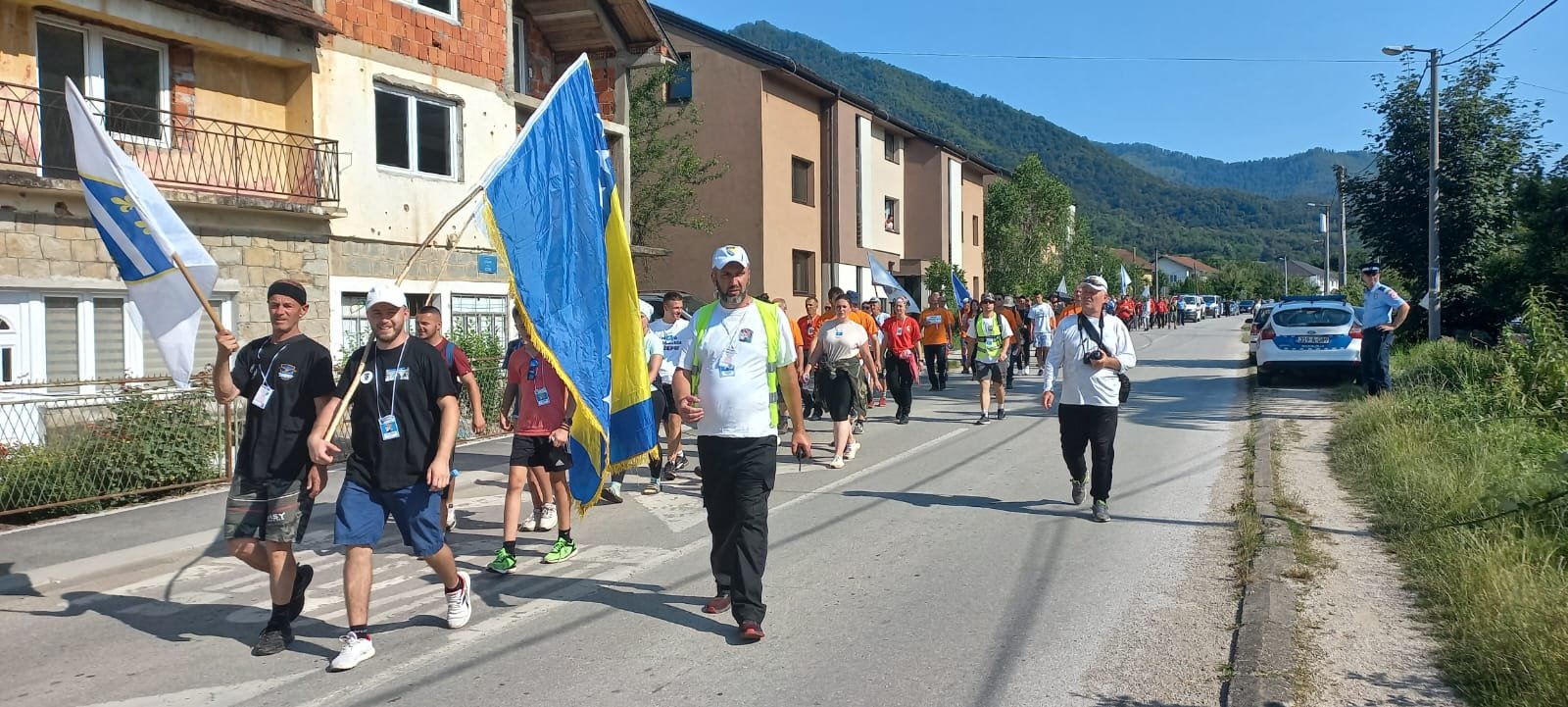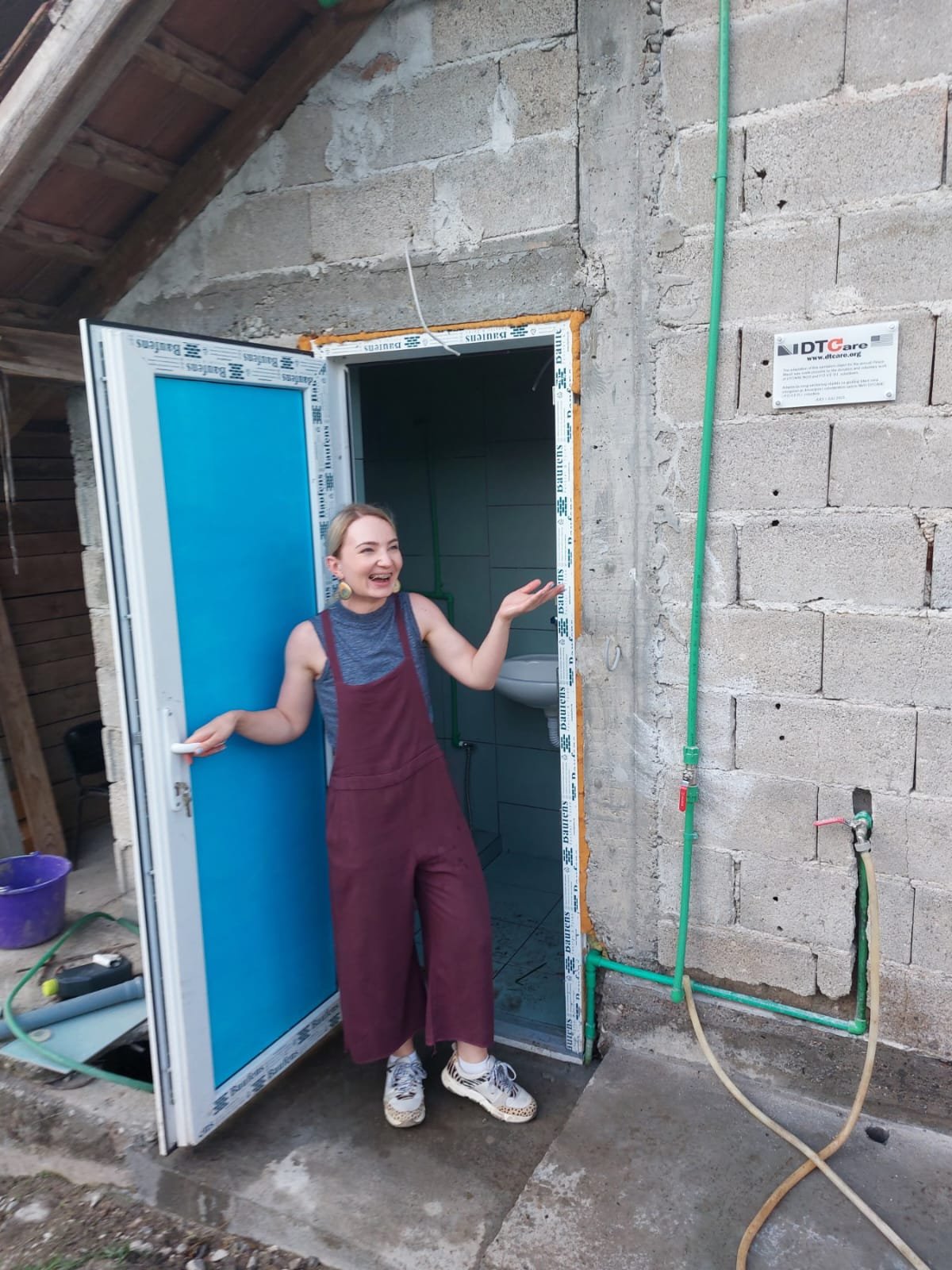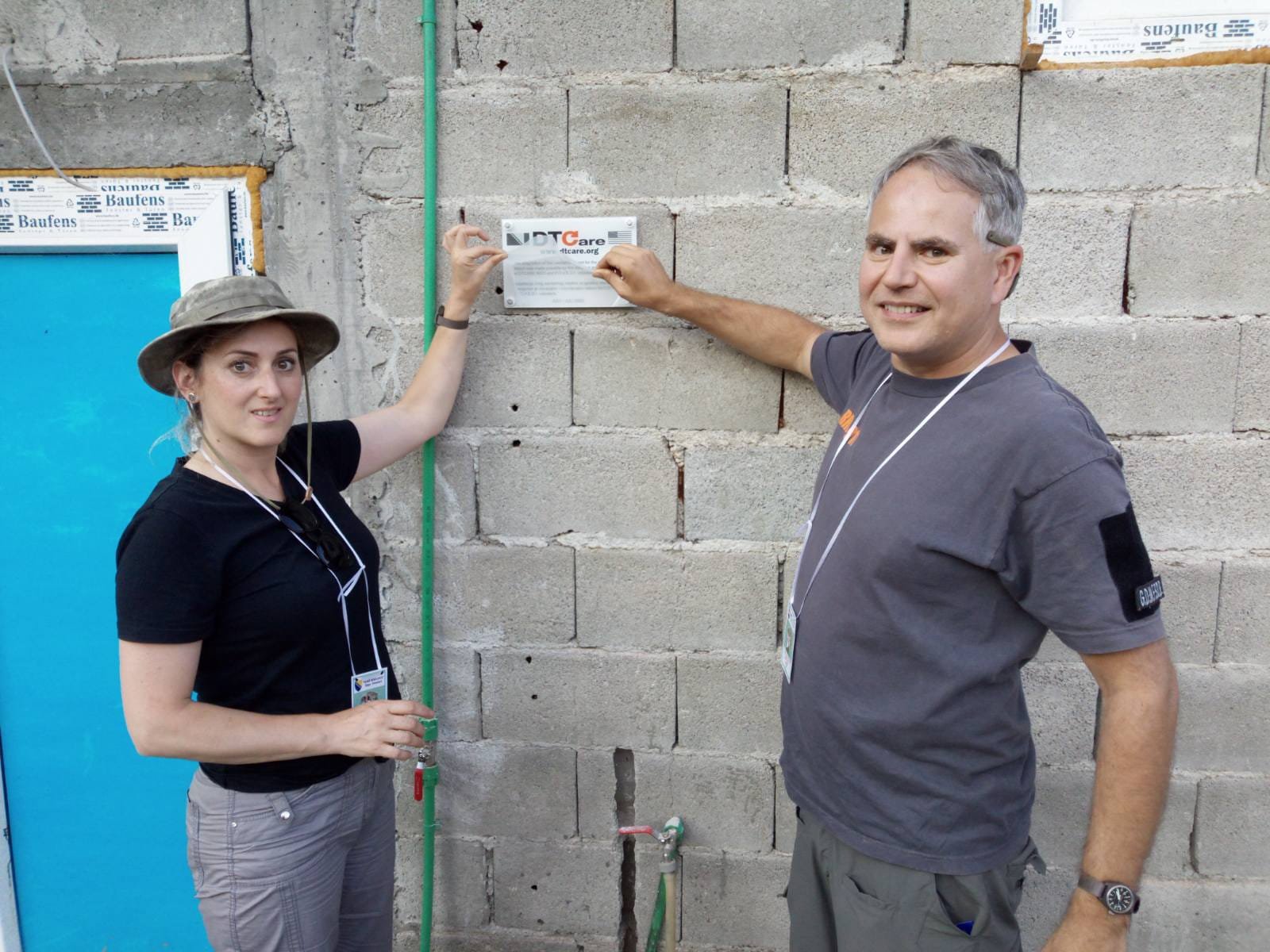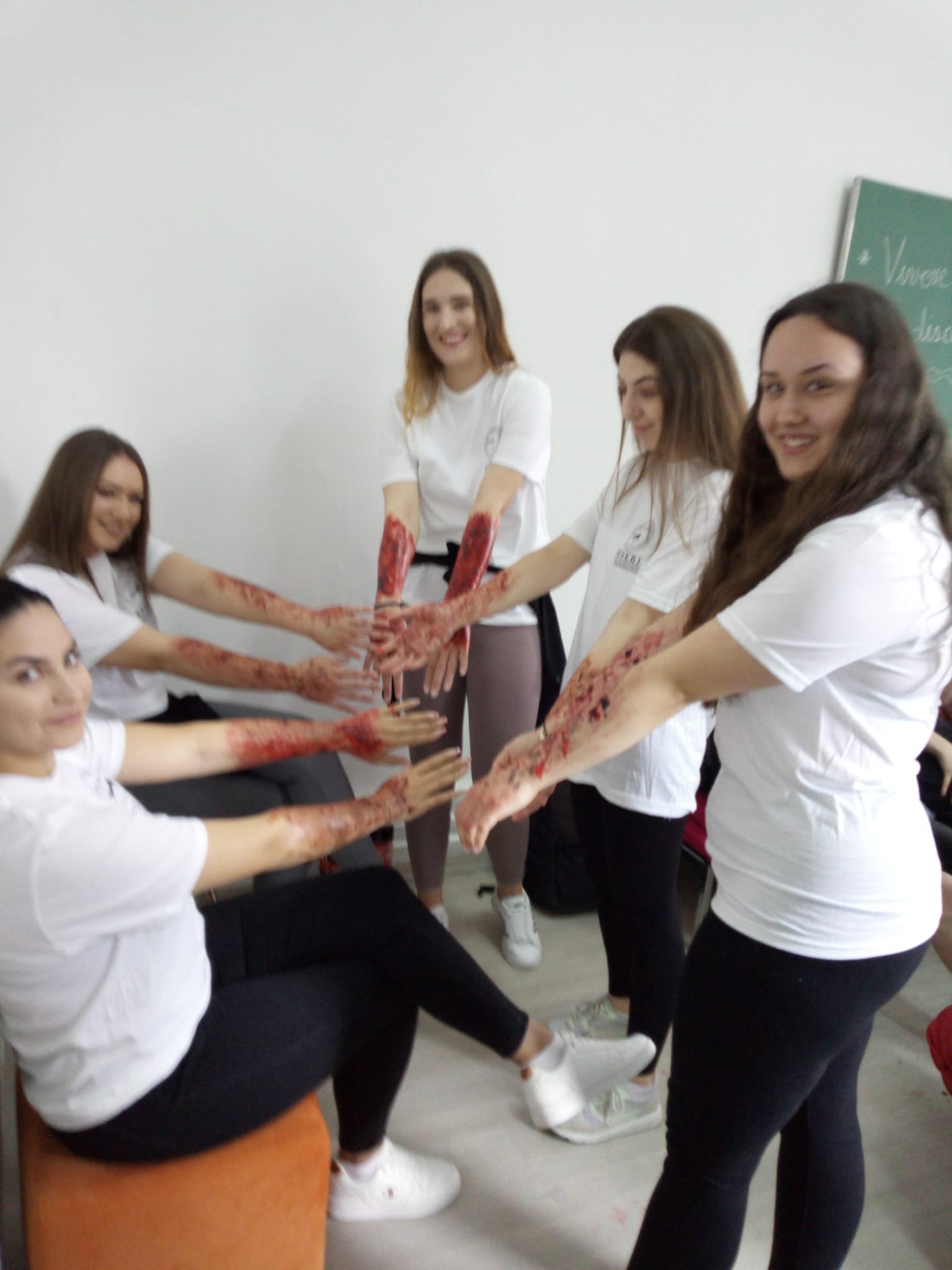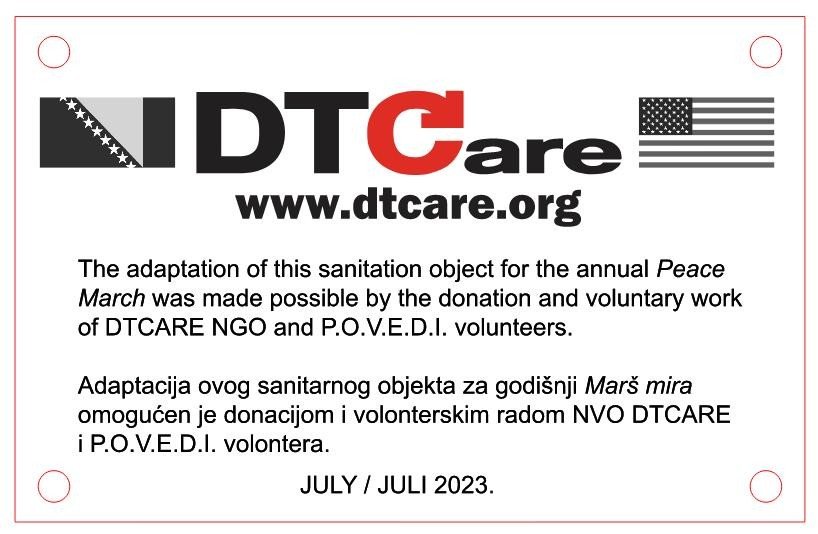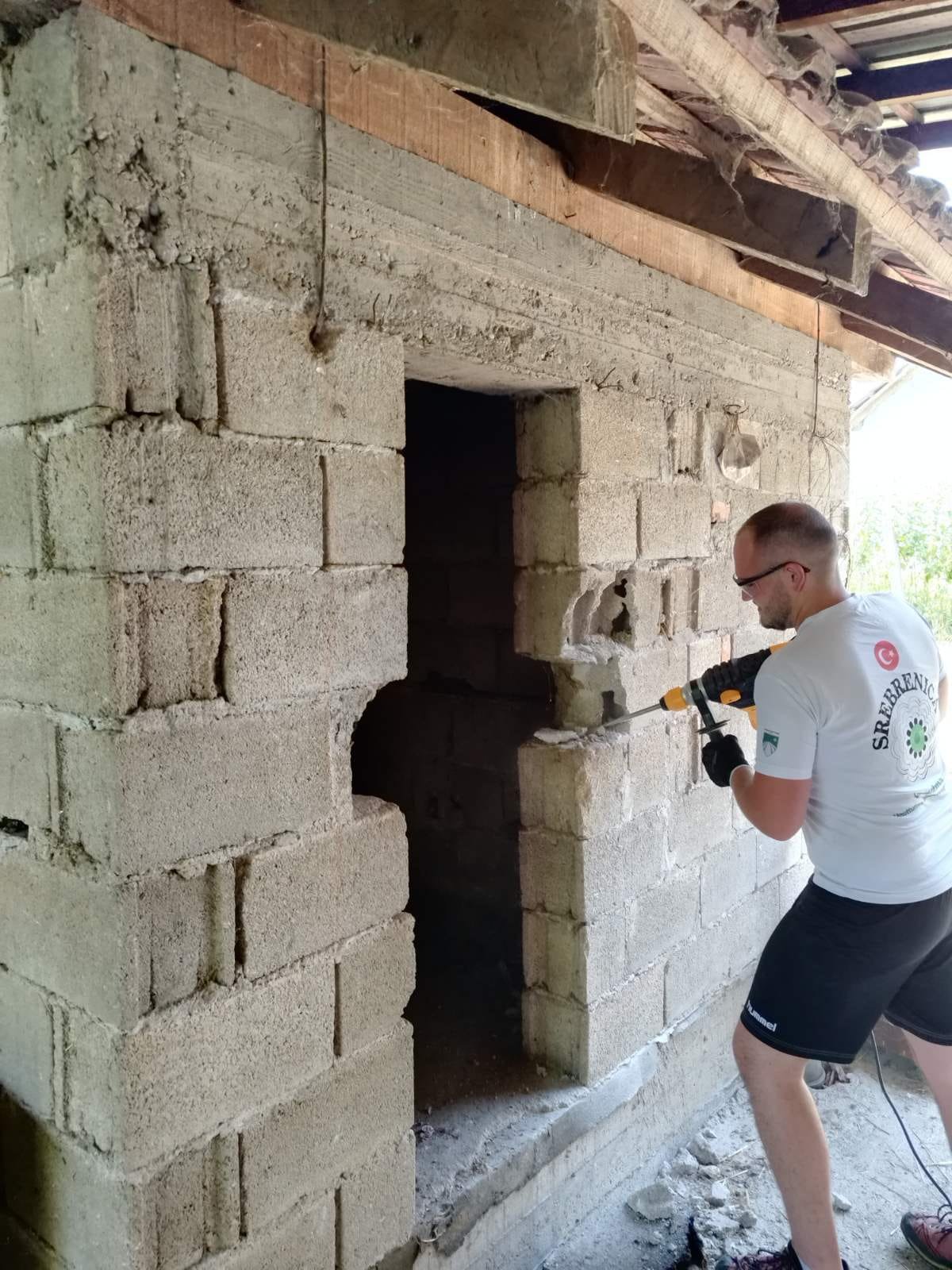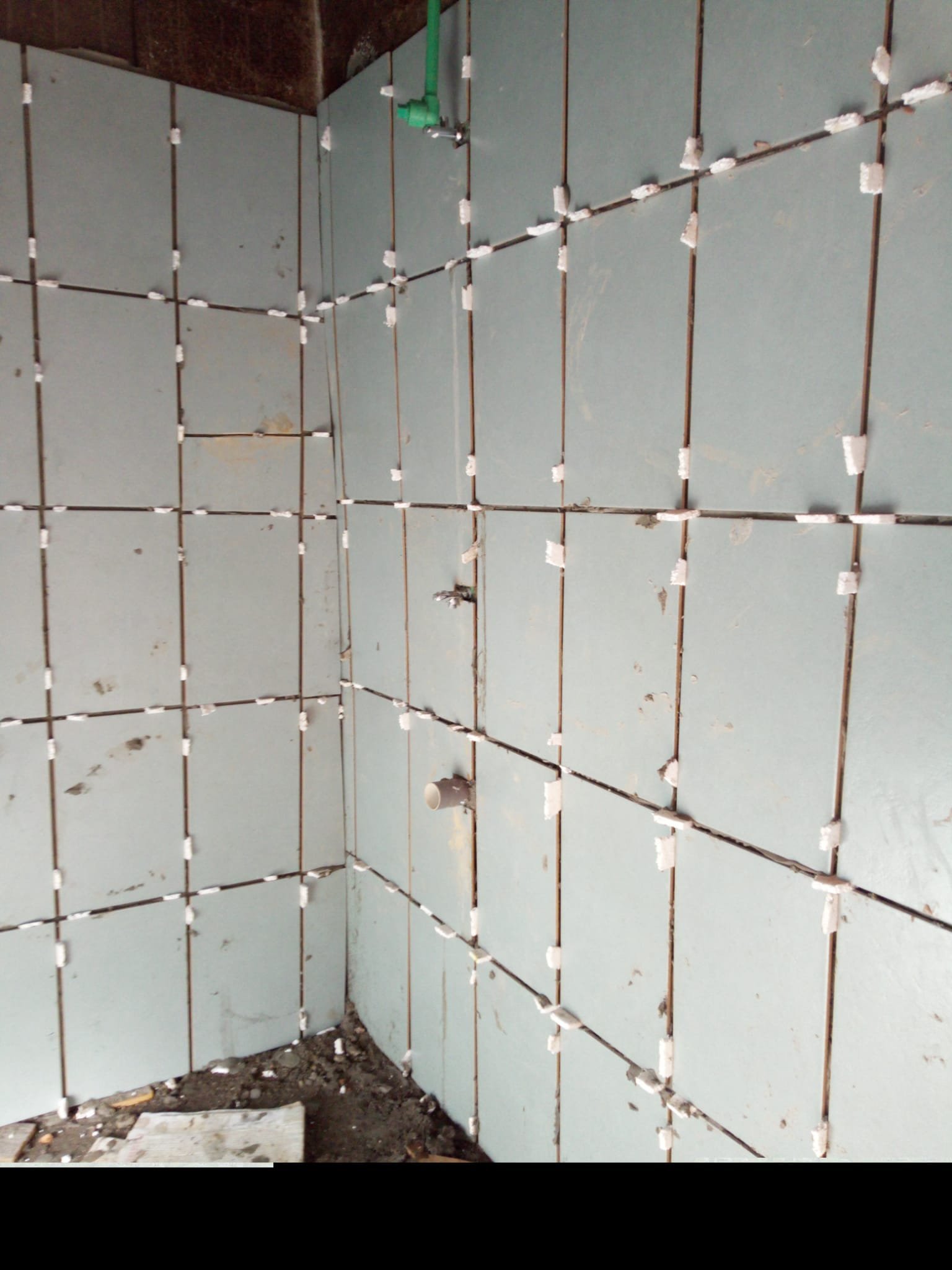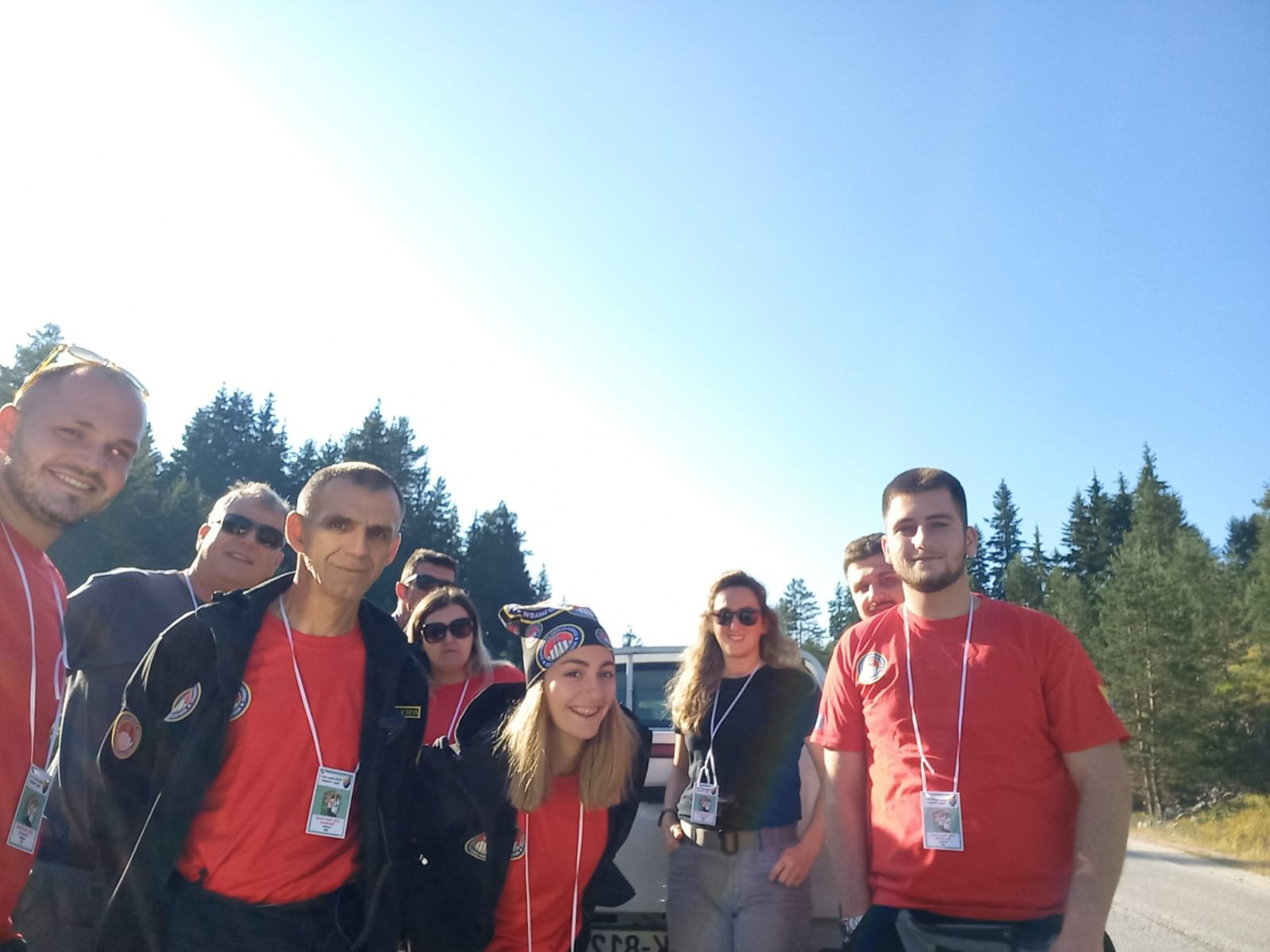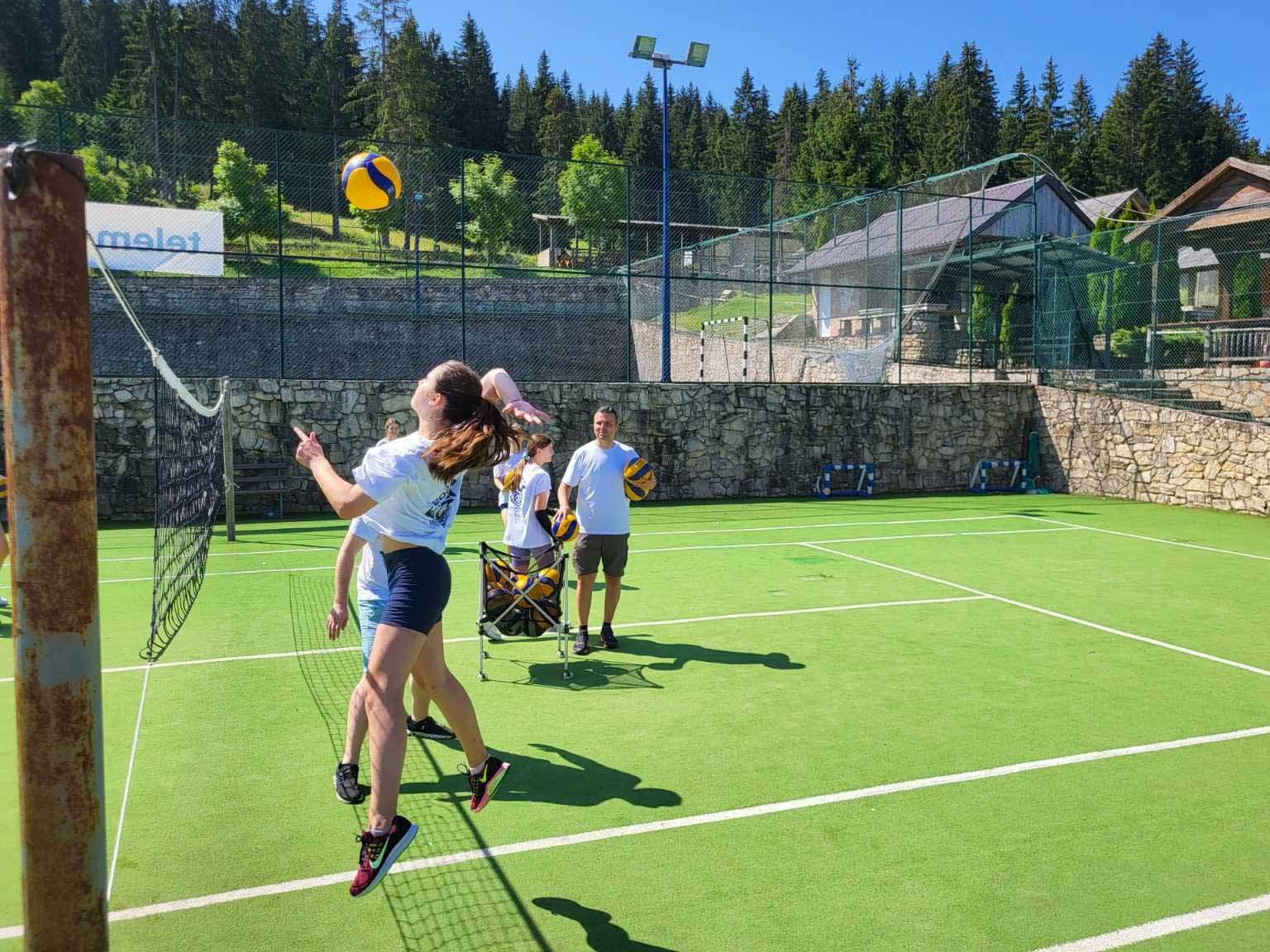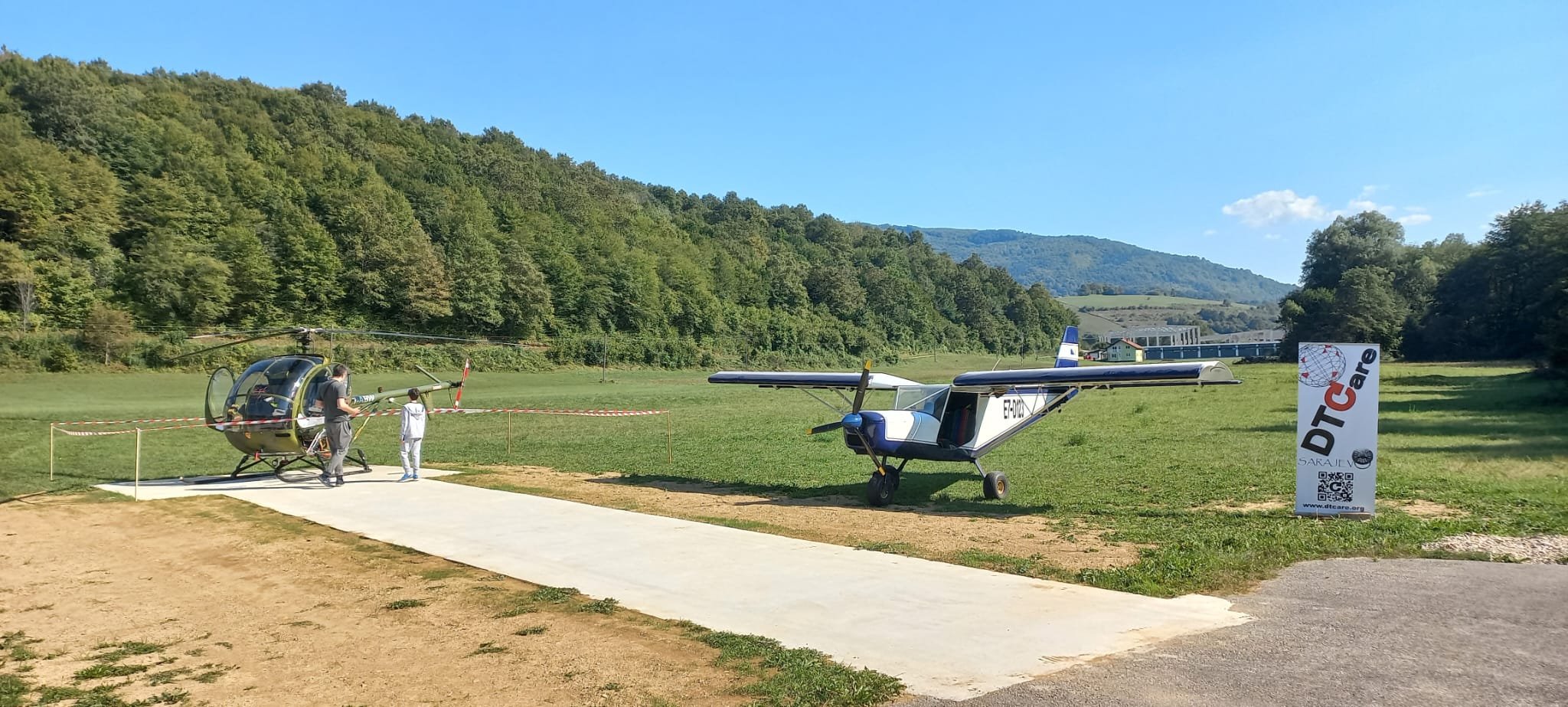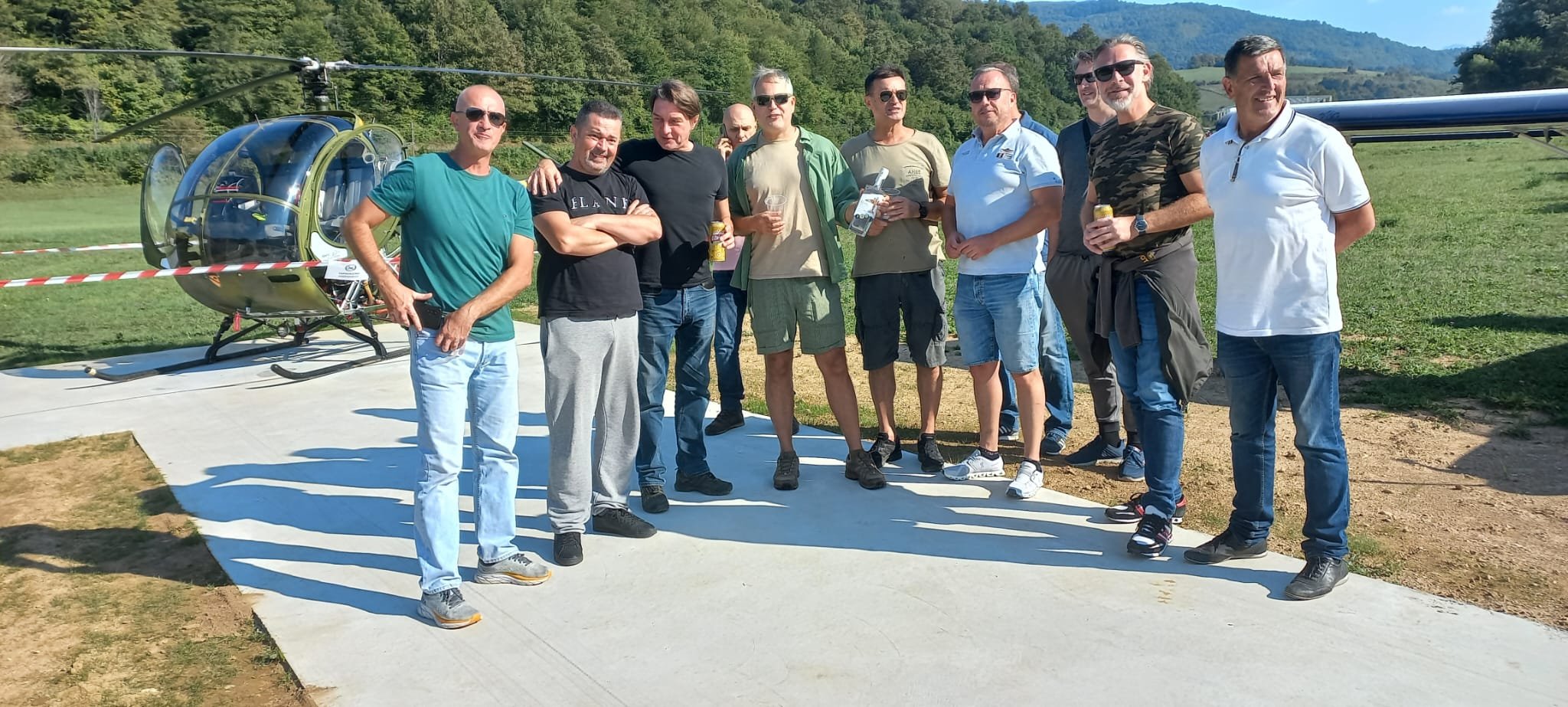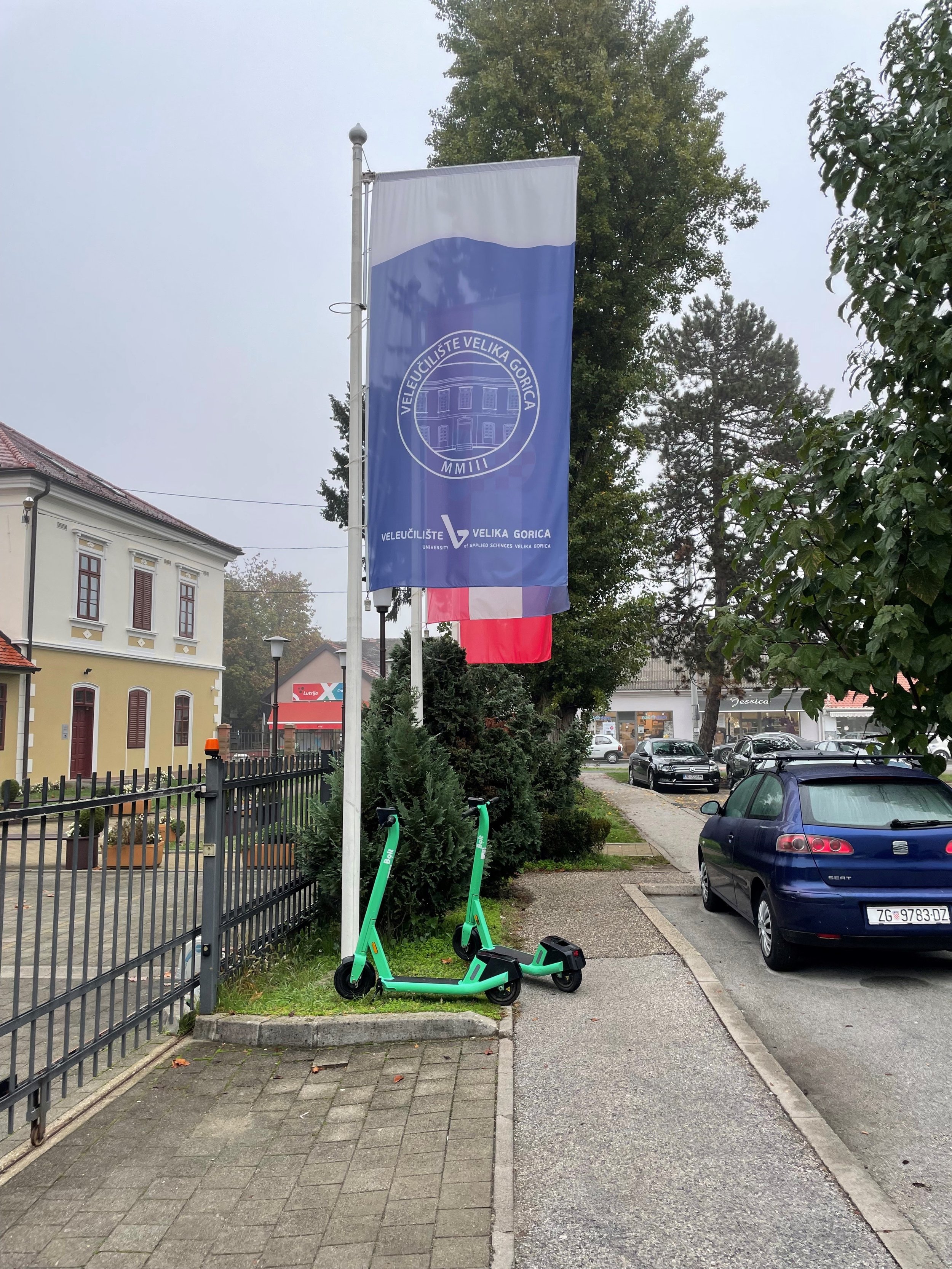Building Blocks of Civil Society
Fostering Unity and Camaraderie in a Decentralized Country
Bosnia and Herzegovina shares many of its challenges in the development of a stable civil society with its neighbors. DTCare recognizes the birthing pains of civil society as a regional program, and we want to address and mitigate these underlying challenges alongside our local partners to promote unity and solidarity in a post-conflict and politically divisive society. DTCare’s targeted initiatives are designed to identify and promote unifying elements in a decentralized country through communal projects, community building, civics education, mapping of peace-building strategies, and re-establishment of cross-cultural dialogue.
We aim to develop a series of key assessments across civil-society sectors with an emphasis on the fragmented governance system in Bosnia-Herzegovina (health, law enforcement, and social protection), corruption (Bosnia-Herzegovina, Serbia, Montenegro), territorial disputes (Serbia-Kosovo*, N. Macedonia vs. Bulgaria-Greece), radicalization (Bosnia-Herzegovina, Kosovo*, Macedonia), Hybrid-conflict (Bosnia-Herzegovina, Montenegro, N. Macedonia), Crisis Management and Communication (all Western Balkans), military and security imbalance (all Western Balkans) and other major security challenges (migrant crisis).
DTCare Unifies Ethnically Diverse Girls Through Sports at First Annual MOVEMENT Camp
DTCare's first annual MOVEMENT summer volleyball camp (Mountain Volleyball, Education, and Mentorship), as part of our new Unification Through Sports Initiative, was held from July 21-23, 2023, at Mountain Vlašić, in Bosnia and Herzegovina. The event brought girls between the ages of 11-15 from various ethnic backgrounds together to increase tolerance between ethnically diverse communities and build female leadership by instilling empathy, connection, and reconciliation through the power of sports and mentoring. The volleyball camp started with the arrival of the participants from OK Travnik and OK Victoy Novi Travnik to Vlašić mountain, Eko Fis complex, where they stayed for the duration of the trip. DTCare introduced the participants to the camp mentors and volunteers during an introductory dinner on the evening of July 21st. The second day of the camp—July 22nd—was very active, with various activities and social opportunities. The camp ended after three busy days of volleyball, socializing, games, learning, and mentoring sessions. During the event, DTCare helped participants build a sense of camaraderie, worked on improving their communication, promoted team spirit, and explored more delicate topics such as peer pressure and personal safety in the real and online world. DTCare's also offered targeted sessions for other interests that girls may have, including medicine, science, engineering, astronomy, psychology, philosophy, and security, as a way for them to get information and exposure to potential future professions. The camp is the first of a series of multidisciplinary events designed to bring mentors and volunteers from both BiH and the USA together to foster social interaction, reconciliation, and understanding among the young people of BiH. DTCare is proud to announce that DTCare Sarajevo recently received a grant from the Sarajevo Winter Diplomacy Bazar. The grant will help support DTCare's Annual Movement Volleyball Tournament for Girls, an event dedicated to bringing girls from various backgrounds in Bosnia and Herzegovina together.
Empowering Women in Law Enforcement: DTCare Joins Global Campaign Against Violence and Femicide
As a part of the “16 Days of Activism”, a worldwide campaign that runs from November 25 (International Day for the Elimination of Violence against Women) through December 10, (International Human Rights Day), DTCare Sarajevo has taken part in the workshop, sponsored by the TPO Foundation, University Gender Resource Center and the Association of Female Law Enforcement Officers, dedicated to women in law enforcement and their encounters of various types of violence and gender bias. The campaign is intended to emphasize the human rights framework and use it to ensure that a variety of state and non-state actors express and implement accountability for reducing and eliminating violence against women. The focus of this year’s campaign is prevention and the fight against femicide. To that effect, enabling the women who are at the forefront of enforcement and protection was an important task. DTCare’s Zemira Konjalic and Amer Smailbegovic addressed the topic of micro-aggression and what happens if it runs unchecked.
Veteran Aviators Come Together to Popularize Civil Aviation in Bosnia and Herzegovina
DTCare Sarajevo, in cooperation with the Foundation DVA, organized a fly-in social and mixer to bring together veteran aviators from Bosnia and Herzegovina and popularize civil aviation in Bosnia and Herzegovina. The intent is to capitalize on veteran aviators' unique experience and training to create and stimulate interest in engineering, aviation, STEM, particularly among young audiences, and encourage growth and training of aviation and technical disciplines in Bosnia and Herzegovina. Being a relatively rugged and mountainous country with a modest infrastructure, Bosnia and Herzegovina could significantly benefit from the availability and accessibility of rotary-wing aviation for various reasons, including search-and-rescue, medevac, tourism, and conservation.
DTCare and the AWC "Bosnian Beasts" Unite Former Yugoslav Republic Athletes for Second Annual Visoko Arm Wrestling Tournament
The AWC "Bosnian Beasts" and DTCare Sarajevo held the Second Annual Charity Arm Wrestling Tournament in Visoko in August 2023. The international tournament featured around 50 competitors from former Yugoslav republics, including Bosnia and Herzegovina, Croatia, Montenegro, and Slovenia. The tournament aimed to promote underrepresented sports in Bosnia and Herzegovina while engaging young people in humanitarian activities. It also provided Mubekir Zilić, the BiH champion in arm wrestling, with the opportunity to officially register AWC "Bosnian Beasts" and attract competitors from neighboring countries to foster peace and understanding and promote tourism in Visoko, Bosnia and Herzegovina.
Honoring the Lives Lost at Srenrenica: DTCare Supports Bosnian Families As They Commemorate Their Loved Ones
From July 11 to the 16th, 1995, during the Bosnian War, the Srebrenica Genocide occurred in Srebrenica, Bosnia & Herzegovina. The Bosnian Serb Forces, led by Ratko Mladić, began the massacre, which became the worst mass murder in Europe since WW2. On the night of July 11, more than 10,000 Bosnian Muslim men and boys fled from Srebrenica through the forest to reach safety. The next morning, Bosnian Serb officers made false promises of safety to encourage the men to surrender; thousands gave themselves up or were captured, and many were then executed. An estimated 8,000 men and boys were killed during those five days. Each July, thousands participate in the 100-kilometer (60-mile) long peace march to remember the path taken by the thousands of men and boys fleeing the genocide. One of the main stops along this route is a well-known chicken farm run by two sisters and their grandmother, some of the survivors of the massacre and first families to return to the region. Each year as the marchers come by, the three women provide free food, a sanitation facility of a single bathroom, and allow them to camp for the night. To help improve their facilities for the annual march, DTCare has built up their sanitation facilities to include three bathrooms and a row of outside showers for the march participants. Our team sourced and recycled local materials and supported small businesses owned by the returnees in the Podrinje region of Bosnia and Herzegovina, which experienced some of the worst atrocities during the conflict in the 1990s. We hope to help those affected by this heinous genocide while remembering the thousands of innocent lives lost.
DTCare and Student Volunteers Improve Sanitation Along the Historic Peace March to Srebrenica
DTCare in Bosnia and Herzegovina and the USA, along with student volunteers from the first generation of the Crisis Management master's program at the Faculty of Criminal Justice, University of Sarajevo, have begun improving the sanitation facilities along the significant points of the annual Peace March to Srebrenica. This march commemorates the events of July 11, 1995.
Several hamlets of returnees along the Peace March route have returned to their homes with the intention to rebuild and remember. At one of these farms, thousands pass by during the march and use a single bathroom in the home. To improve the facilities, the DTCare team has adapted some farm buildings and spaces to include two additional bathrooms and a row of outside showers that the march participants can use. These facilities provide potable water, power-washing sanitation, and more.
The team also sourced and recycled local materials and supported small businesses owned by the returnees in the Podrinje region of Bosnia and Herzegovina, which experienced some of the worst atrocities during the conflict in the 1990s.
Supporting Girls and Women in Sports
Across Bosnia and Herzegovina (BiH), a disparity of equal opportunity and financial backing persists between women and men in sports, revealed a study by UN Women. More needs to be done to include women in decision-making roles and distribute public funds more equitably in the sports sector to develop women's sports and promote inclusivity. "Sport is key to supporting women and girls' confidence, empowerment, and development, central tenets of Sustainable Development and the Global Agenda 2030," said David Saunders, UN Women Representative in BiH. Saunders explained, "Fair play and merit-based success are central to sports. For women and girls to succeed and excel, fair public funding that is distributed in a more equal and efficient manner is the least the government can do." Funding not only promotes equality but also enables athletes to focus on what matters most: their sport.
As DTCare works to enable athletes in BiH, empowering the next generation of female athletes is one of our highest priorities. To that end, we proudly co-sponsored the first volleyball tournament of the "Travnik Cup 2023" in Travnik on 19 March. Six all-girl volleyball clubs of 150 athletes participated in the contest organized by the Local Community of Bojna and OK Travnik and took place at Travnik Elementary School. The OK Kaćuni team won the cup, while OK AS Donji Vakuf earned second place, and OK Busovača came in third. Read more about the all-girls volleyball tournament “Travnik Cup 2023” here.
Expert Insights Into Criminal Justice and Detective Work
In December 2022, DTCare hosted an "Evening with Bob Myers” at the University of Sarajevo. Myers is a retired detective from Los Angeles who currently lives in Sarajevo. Myers spoke with interested law enforcement agencies and master's students from the Faculty of Criminal Justice at Sarajevo University. He spoke about his years as a detective, interviewing witnesses, reading and analyzing body language, and solving crimes.
Evaluating the Efficacy of Emergency Aid in the Aftermath of the Beirut Explosion
DTCare began providing relief aid and essential support to those affected by the port explosion in Beirut. Our emergency response team was on the ground within days of the blast, working closely with other governmental and nonprofit organizations, including the Disaster Joint Operations Center and the Lebanese Red Cross, to provide meals and shelter and to help clear debris. The explosion uprooted thousands of families from their homes. Even though urgent relief was needed after the explosion, helping thousands of people rebuild and resettle is a long-term commitment. DTCare noticed that emergency responders and resources were ample in the first few months following the disaster, but many organizations did not continue their efforts to help rebuild and retracted their support and resources after the initial shock period ended. DTCare determined that a more sustainable relief effort of consecutive phases is required to aid Beirut (and surrounding regions) and help the population rebuild. To gain insight into the current condition of the city and the needs of the Beirut populace, DTCare board member, Andy Brown, attended the “Crisis Management Days" Conference at the University of Velika Gorica in Croatia to present on and evaluate the efficacy of organizations providing emergency aid and recovery in the aftermath of the port explosion crisis.
Pakistan: Natural Disaster Response
In June 2022, the monsoon flooding disaster devastated one-third of Pakistan, impacting an estimated 33 million people (Give2Asia, 2022). The unprecedented floods resulted in the deaths of over 1,700 people while leaving more than 12,000 injured. An estimated 15 million live in flood-affected regions in need of emergency food aid and the floods forced nearly 9 million people into extreme poverty and educational setback (UNICEF, 2023). DTCare joined forces with the Rayyan Center to send and distribute a containerload of thousands of essential supplies to aid the Pakistani civilians at the heart of the humanitarian crisis. DTCare proudly donated six pallets of our hygiene supplies to support the Ryaan Center's incredible effort. Read more about the devastating floods in Pakistan on unicef.org and give2asia.org.
Infrastructure Improvements for Accessible Healthcare
DTCare joined forces with a municipality in Central Bosnia and local charities to improve 200 meters of road essential to make primary health care services more accessible for senior residents in the Busovaca region. The municipality donated an estimated 40 cubic meters of concrete to the project. DTCare surveyed the road, prepped and filled the surface, purchased the rebar, assembled the workforce required to spread the concrete, and repaired the road drainage system for a total cost of $3,000. The funds used were contributed to the road improvement project by the local community and organizations.
Dr Amer Smailbegovic
As a prominent international expert for government and trans-national projects on crisis management, environmental assessment, and geospatial sciences, Dr. Smailbegovic acts as a technical advisor for DTCare. His expertise is currently focused in the Western Balkans to assist with the rehabilitation of a post-conflict society.
By working with Dr. Smailbegovic, DTCare gains insight into the real-world challenges Bosnians face and the local cultural, economic, and political situation to design programs that have a long-term positive impact.
Dr Smailbegovic’s concept paper “using an interdisciplinary, hands-on approach,” outlines “a gradual primer designed towards emergency professionals that would prepare them for a phased roll-out of a command, control and communications center within their community, region or even on a national level.” (Smailbegovic, A., Korajlic, N., and Fejzic N., 2021)

